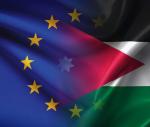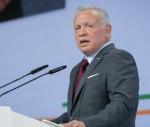You are here
A European Germany, not a German Europe
Nov 07,2019 - Last updated at Nov 07,2019
The fall of the Berlin Wall, 30 years ago on Saturday, was one of the best parties I ever went to, and certainly the longest. But when I finally sobered up, it was also quite frightening, because nobody knew what was coming out of the box next.
There had been scary moments in Germany during the Cold War, of course, with Soviet troops in the eastern part and troops from practically every Western country in the western part, but a divided Germany had become part of the landscape.
For many people on both sides, in fact, it was a quite satisfactory landscape. As François Mauriac once said: “I love Germany so much I’m glad there are two of them.”
For the older generation of Europeans, Germany had always been the problem, two world wars, and the post-1945 division of the country was a kind of solution, since it kept foreign troops in both parts of Germany. They were not formally occupation forces any more, but they served as a sort of guarantee nevertheless. And now, in November 1989, that solution was collapsing.
On a brief visit to Moscow just weeks before the Wall came down, British prime minister Margaret Thatcher told Mikhail Gorbachev, the then-Soviet leader: “We do not want the reunification of Germany. It would lead to changes in the [post-1945] borders that would undermine the stability of the entire international situation.”
Indeed, Thatcher added, Gorbachev should ignore any statements to the contrary by the West. The NATO alliance might have to make pro-reunification statements to keep its German partner happy, but the other members did not really want to abandon the post-war settlement and “de-communise” eastern Europe. But she was wrong about that.
Most of the senior politicians in what was not yet called the European Union (EU) understood that German reunification was a risk that had to be accepted. There was a new German generation in charge, and you had to trust them.
Western Europe’s leaders also understood that ‘de-communising’ eastern Europe might finally deliver the free and democratic Europe that should have followed the victory over Hitler in 1945, and they had the steady support of the senior president Bush in both those choices. But it really was a gamble, and it might all have gone wrong.
A reunited Germany could once again have used its wealth, numbers and central position to seek domination over Europe, as it had done under both the Kaisers and the Nazis. The countries of eastern Europe, freed from Russian rule, might have ended up as a string of squabbling tinpot dictatorships, as most of them did when they first got their freedom after World War I.
The main reason it did not all end in tears was the European Union, a more comprehensive version of the existing European Economic Community that was negotiated in 1990-92 and declared in 1993.
Creating the EU, and giving it a common currency, the euro, provided a structure big and strong enough to contain a united Germany and not be dominated by it. It also saved the former ‘satellite’ countries of Eastern Europe from a potentially ugly fate.
The EU countries had all the things that Poles, Slovaks and Bulgarians longed for: Prosperity, personal freedom and democracy. And although it is not a charitable institution, the EU decided to let the eastern European countries join, provided that they also became law-abiding and relatively uncorrupt democracies. So that is exactly what they did.
The fall of the Berlin Wall did not lead automatically to the benign reunification of Germany. It created the opportunity for positive change, but making it happen took clear thinking and hard political work. The happy outcome in Eastern Europe was not some quirk of fate either. It was the product of social engineering on an international scale.
There is no ‘German question’ today. It has been solved. The economies of Eastern European countries are far bigger than they were 30 years ago, four times bigger for Romania, six times for Poland and average incomes are catching up. In 1990 Poles earned only a quarter of what Germans did; now it’s almost two-thirds.
There are some problems with populist/nationalist regimes in Poland and Hungary at the moment, but it is still far better there politically than it ever was before 1989. It is better everywhere, so why is the United Kingdom, the second-biggest member of this organisation that has put an end to centuries of war and tyranny in Europe, now planning to leave the EU?
Because the English do not get it. Britain is an island that has not been successfully invaded for almost a millennium, so they do not realise that the EU is primarily about preserving democracy and keeping the peace. They think it is just an economic deal, and a lot of them believe (mistakenly) that they can get a better deal elsewhere.
They are, as Napoleon allegedly remarked, “a nation of shopkeepers”. Actually, it was Adam Smith who said it first. A nation of shopkeepers who have not even noticed that their shops are closing down.













